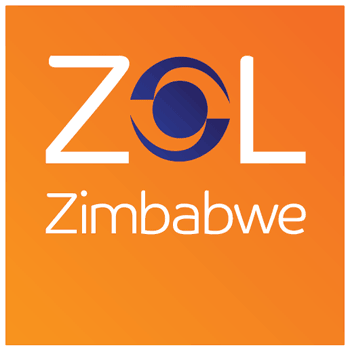 The two largest telecom companies in Zimbabwe believe broadband access isn’t just an essential utility — it’s a basic human right and they are responding with major upgrade projects that will deliver speedier broadband, sometimes even faster than what most customers in North America can access.
The two largest telecom companies in Zimbabwe believe broadband access isn’t just an essential utility — it’s a basic human right and they are responding with major upgrade projects that will deliver speedier broadband, sometimes even faster than what most customers in North America can access.
Anything less than fiber-to-the-home service won’t do, according to Tom Tudor, chief marketing officer at Liquid Telecom. The company is expanding its fiber project in Zimbabwe with popular tourist destination Victoria Falls getting a major upgrade. Liquid Telecom believes data caps are incompatible with the concept of bringing the Internet to more people to “participate in, and benefit from, the digital revolution.” Liquid Telecom’s fiber service – Fibroniks, doesn’t have usage limits or hidden gotcha fees.
“Every day we lay new fiber which enables us to deliver what we refer to as ‘The Real Internet’, a superfast service which transforms how people access and share information,” Tudor said.
 At the outset in Victoria Falls, Fibroniks will offer unlimited use packages up to 100Mbps, with a commitment customers can access whatever they want, whenever they want, at a guaranteed fixed monthly price. Liquid Telecom already supplies fiber service in the capital city of Harare, but Tudor believes getting into smaller communities in the country is essential.
At the outset in Victoria Falls, Fibroniks will offer unlimited use packages up to 100Mbps, with a commitment customers can access whatever they want, whenever they want, at a guaranteed fixed monthly price. Liquid Telecom already supplies fiber service in the capital city of Harare, but Tudor believes getting into smaller communities in the country is essential.
“We believe that internet connectivity is a basic human right and so it is our mission to provide quality broadband to every person and business in Africa,” said Tudor.
It will bring a broadband revolution to Victoria Falls, a community of over 35,000 that has languished with ADSL and last generation wireless services like WiMAX and 3G, which offer speeds typically no higher than 512kbps.
Fibroniks also includes telephone service, which will cost a fraction of what Tel•One, Zimbabwe’s sole fixed landline provider, charges for service. Tel•One has focused most of its investment improving and expanding ADSL service over its existing landline network. Although Tel•One may end up reaching more Zimbabwe citizens faster that Liquid Telecom, the speeds Tel•One provides will be much slower than Liquid Telecom’s Fibroniks.
Liquid Telecom’s other fiber to the home projects are in Zambia, with plans to expand to Kenya, Rwanda, and two other African countries yet to be announced.


 Subscribe
Subscribe
You do realize that Zimbabwe is a fascist failed state where internet is the least of their concerns? Or, are you blind to the devastating human rights violations occurring there?
Zimbabwe is one of the fastest growing African countries with respect to Internet access. Approximately 40 percent (5.2 million) of Zimbabwe’s population were internet users as of January 2014. This contrasts with 15.7 percent in 2011 and 0.4 percent in the year 2000. Robert Mugabe and his ZANU-PF party are autocratic and thuggish, but they are not “fascist.” ZANU-PF is a left wing movement, although it would probably be more accurate to say they are corrupt more than they are socialist. Human rights violations are a major issue in the country, but the people running Liquid Telecom (which is the… Read more »
Wow, leftists truly are psychopathic monsters. Fascism is leftism(Socialism)+nationalism. Mussolini hated the monarchy and the older “conservative elites”, but the monarchy had too much power. Beyond that, you look at modern leftism in America, and to a large degree, it is identical to the Nazism(minus racial supremacy ideology, but the antisemitism remains, albeit toned down). Both advocate the genocide of races they deem “inferior”, both advocate the murder/”euthanasia of the disabled. Both support gun control. After all, it was Hitler who coined the phrase: “To disarm the people is the best and most effectual way to enslave them”. One of… Read more »
You are obviously not a student of history, of the current state of African geopolitics. Stick to what you know – which seems to be telecommunications.
Please watch “Mugabe and the White African” if you want to educate yourself. Or, look into the Movement for Democratic Change, and the harassment they faced during the past election cycle.